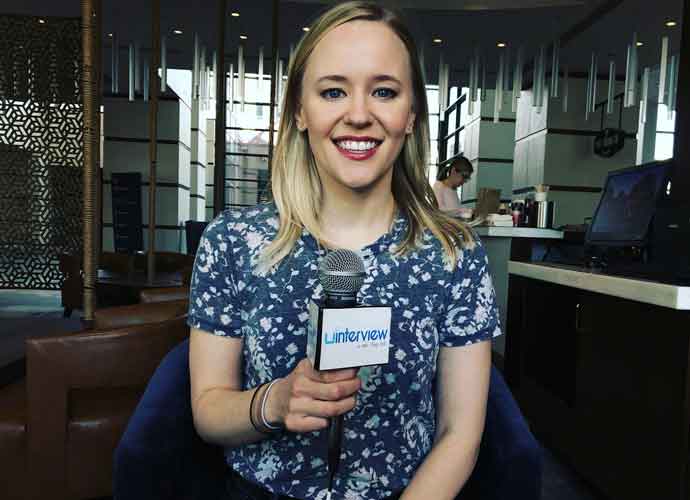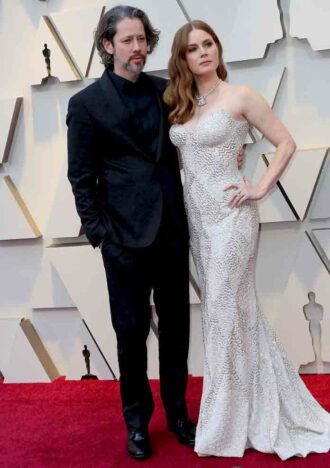SXSW 2019 VIDEO EXCLUSIVE: Kelly O’Sullivan On ‘Saint Frances,’ Women’s Bodies
Kelly O’Sullivan is an actress best known for her work in USA Network’s Sirens – but at this year’s South by Southwest Festival in Austin, Texas, she made quite the splash with her new film Saint Frances. The movie, which O’Sullivan wrote and Alex Thompson (Humane Resources) directed, took home the Special Jury Recognition for Breakthrough Voice and was the Audience Award Winner for Narrative Feature at SXSW. O’Sullivan sat down with uInterview exclusively to discuss the film, what inspired her to write it, and how she hopes her movie wills serve as inspiration for women who watch it.
“I play Bridget, who is an uninspired thirty-something who dropped out of college and hasn’t really done much with her life, and the plot of the movie is that Bridget gets hired as a nanny to a really obstinate six-year-old at the beginning of the summer, right around the time when she finds out that she’s pregnant with an unwanted and unexpected pregnancy, and Bridget decides to get an abortion,” O’Sullivan said of the film’s plot. “And so the whole movie is about the juxtaposition of taking care of other people’s children during the day, while having just made the decision not to have kids on her own.”
When asked why she chose to write a story that so openly depicts such hot-topic issues as abortion, O’Sullivan explained that she “wanted to portray something where the woman, as soon as she knows that she’s pregnant decides to get an abortion and never wavers on that,” in contrast to most of the movies made on the topic today. Additionally, O’Sullivan hopes her film portrays women’s bodies “in a realistic way,” which too often Hollywood refuses to do.
50 CELEBRITIES WHO DIED IN 2018 – TRIBUTE SLIDESHOW
The film is O’Sullivan’s first script, although she said she’s gotten the knack for writing through reading scripts throughout her acting career. O’Sullivan also stars in the film as Bridget, alongside newcomer Ramona Edith Williams, who plays the six-year-old girl Frances. Ultimately, O’Sullivan hopes that her film connects with women on a deeper level. “I would hope if women who saw this film, whatever they might feel a certain amount of shame for, whether it’s bodies or choices, that this movie helps women to feel less shame,” she said. “And in general that it helps people walk away with more empathy for other people, because you don’t know what’s going on in someone’s personal life.”
As for what’s next, O’Sullivan tells us she’ll likely continue to work with Thompson, and that she has an idea for a new script focused around high school girls.
Read the full transcript of the interview below:
Q: “Who’s your character in the film?”
A: “I play Bridget, who is an uninspired thirty-something who dropped out of college and hasn’t really done much with her life, and the plot of the movie is that Bridget gets hired as a nanny to a really obstinate six-year-old at the beginning of the summer, right around the time when she finds out that she’s pregnant with an unwanted and unexpected pregnancy, and Bridget decides to get an abortion. And so the whole movie is about the juxtaposition of taking care of other people’s children during the day, while having just made the decision not to have kids on her own.”
Q: “What did you want to say about women’s health issues?
A: “Well I feel like abortion stories are usually portrayed in the media as having traumatic circumstances surrounding them that either the circumstances about becoming pregnant there’s a lot of drama or there’s a great deal of unhappiness and then the decision to actually have an abortion is always really fraught and sometimes women will change their minds at the last moment. And I wanted to portray something where the woman, as soon as she knows that she’s pregnant decides to get an abortion and never wavers on that, and then also I just think there’s a real reticence to portray women’s bodies in a realistic way. Like you look at tampon commercials or maxi-pad commercials, the liquid that they have is blue! And it’s a major part of life for everybody, I mean nobody is here without women having periods. That’s something from the time that we’re really young, we’re taught to hide and make sure it’s something that nobody knows that it’s happening, and be really discreet when you carry a tampon to the bathroom. And I thought that, by nature of this story, it needed to show women’s bodies realistically and what women deal with all the time.”
Q: “Is this your first screenplay?”
A: “This is so crazy because this is my first feature screenplay. I kind of had ideas in the past for maybe a short here or there but I’ve never ever finished them, I’ve never followed anything through. And then this was the first time that I wrote the first few pages and I handed it to Alex Thompson, who’s the incredible director of this film, and he was like ‘you should finish this.’ And so I just decided to finish, and we shot it really quickly. That was in January 2018 that I started writing it, and I think I had a first draft three months later and we were shooting the film three months after that, so it was really just— I don’t have much training in writing other than that I was an actor before that, so I’ve read many many scripts and I kind of knew about what I wanted to see in film and I just decided to give it a shot.”
Q: “What’s your favorite scene?”
A: “I think the final scene – you’ve seen the movie, but the final scene between Bridget and Frannie, just because it’s really emotional and we shot that on our actual last day, and so I knew it was the last time I was going to be seeing Ramona for a while and we’d spent this month together filming, and I’d truly grown to love Ramona, she’s such a cool kid, and saying goodbye to her, both in the film and in real life at the same time, it was really really sad. It was a sad day.”
Q: “What’s your next project?”
A: “I have an idea for a next script, which is just like the very seed of something, but it involves high school girls and kind of the culture around that. And then we’ll go around, we’ll promote the film, hopefully we’ll go to some other really exciting festivals, and yeah, I think Alex and I are going to continue to work together.”
Q: “What message do you hope people take away from the film?”
A: “I would hope if women who saw tis film, whatever they might feel a certain amount of shame for, whether it’s bodies or choices, that this movie helps women to feel less shame and in general that it helps people walk away with more empathy for other people, because you don’t know what’s going on in someone’s personal life. It might seem like a great summer but in actuality it could be a lot of really conflicting emotions happening for a person.”
RELATED ARTICLES
Get the most-revealing celebrity conversations with the uInterview podcast!




 Click here for the Oscars 2019 Slideshow: The 10 Best-Dressed Stars Slideshow
Click here for the Oscars 2019 Slideshow: The 10 Best-Dressed Stars Slideshow



Leave a comment